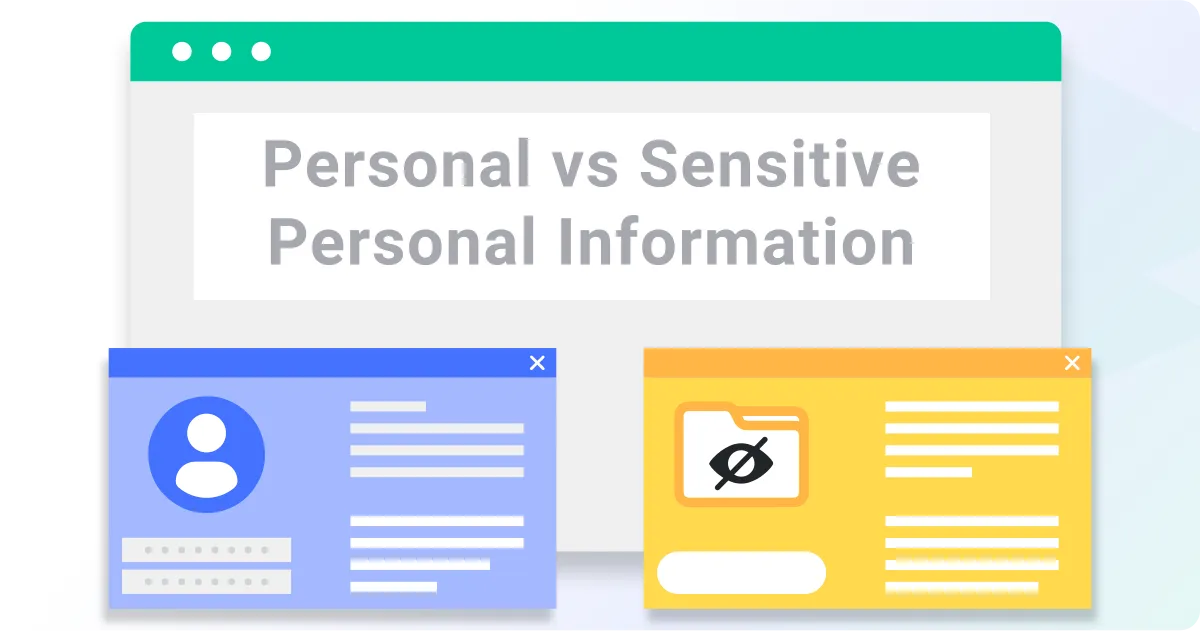The Importance of Data Privacy in Digital Marketing
In today's digital age,
data privacy has become a critical concern for businesses and consumers alike. With the rise of digital marketing, the collection and use of personal information have skyrocketed, making data privacy more important than ever. But why is digital privacy so crucial, and how does it impact marketing strategies?
Photo By: Termly
Understanding User Data Privacy
User data privacy refers to the protection of personal information that businesses collect from their customers. This data can include anything from names and email addresses to more sensitive personal information like credit card numbers and social security details. With increasing data breaches and misuse, ensuring user data privacy has become a top priority for companies.
What is Sensitive Personal Information?
Sensitive personal information is any data that can be used to identify an individual, either on its own or when combined with other information. This includes details like:
- Financial information (e.g., bank account numbers)
- Health records
- Government-issued identifiers (e.g., Social Security numbers)
- Location data
Businesses must handle this information with care, ensuring it's stored securely and used ethically.
Why is Digital Privacy Important?
Digital privacy is essential for several reasons. It protects consumers from potential harm, builds trust between businesses and their customers, and ensures compliance with legal regulations.
Protecting Consumers
When companies fail to protect consumer data, the consequences can be severe. Data breaches can lead to identity theft, financial loss, and even emotional distress for affected individuals. By prioritizing data privacy, businesses can help safeguard their customers' information and reduce the risk of these negative outcomes.
Building Trust
Trust is a cornerstone of any successful business relationship. When consumers feel confident that their data is being handled responsibly, they're more likely to engage with a brand and remain loyal over time. Transparent privacy policies and clear communication about data usage can help build this trust.
Legal Compliance
Data privacy is also a legal obligation for many businesses. Regulations like the General Data Protection Regulation (GDPR) in Europe and the California Consumer Privacy Act (CCPA) in the United States require companies to adhere to strict guidelines when collecting and processing personal information. Failing to comply with these laws can result in hefty fines and reputational damage.
Data Privacy in Digital Marketing
Digital marketing relies heavily on data to create targeted, personalized campaigns. However, this doesn't mean businesses can ignore privacy concerns. Instead, they must find a balance between leveraging data and respecting consumer privacy.
Marketing Ethics
Marketing ethics play a significant role in data privacy. Ethical marketers prioritize user consent and transparency, ensuring that consumers understand how their data will be used. This includes providing clear opt-in options and the ability to opt-out at any time.
The Role of Consent
Consent is a fundamental aspect of data privacy in digital marketing. Before collecting any personal information, businesses should obtain explicit consent from users. This means clearly explaining what data will be collected, why it's needed, and how it will be used. Providing users with control over their data helps build trust and ensures compliance with privacy regulations.
Data Minimization
Data minimization is another important principle. This involves collecting only the data that's necessary for a specific purpose and retaining it for no longer than required. By minimizing data collection, businesses can reduce their risk of data breaches and demonstrate their commitment to privacy.
Best Practices for Ensuring Data Privacy
To ensure data privacy in digital marketing, businesses should adopt several best practices:
Implement Strong Security Measures
Protecting personal information starts with robust security measures. This includes using encryption, regularly updating software, and conducting security audits to identify vulnerabilities. Training employees on data privacy and security is also crucial to prevent human errors that could lead to breaches.
Be Transparent
Transparency is key to building trust with consumers. Businesses should clearly communicate their privacy policies and data practices, making this information easily accessible on their websites. Regularly updating these policies to reflect any changes in data usage is also important.
Provide User Control
Giving users control over their data is essential for maintaining trust. This means offering options for users to manage their privacy settings, access their data, and request its deletion if desired. Businesses should also make it easy for users to opt-out of data collection and marketing communications.
Stay Informed About Regulations
Data privacy regulations are constantly evolving, and businesses must stay informed about any changes that may impact their operations. Regularly reviewing compliance requirements and seeking legal advice when necessary can help companies avoid costly penalties and maintain a good reputation.
Photo By: Metomic
The Future of Data Privacy in Digital Marketing
As technology continues to advance, data privacy will remain a critical issue for businesses and consumers alike. Emerging trends, such as the use of artificial intelligence and machine learning in marketing, will pose new challenges and opportunities for data privacy.
The Rise of Privacy-First Marketing
Privacy-first marketing is a growing trend that emphasizes user consent, transparency, and data protection. By adopting privacy-first approaches, businesses can differentiate themselves in a crowded market and build stronger relationships with their customers.
Embracing Privacy-Enhancing Technologies
Privacy-enhancing technologies, such as data anonymization and secure multi-party computation, offer innovative solutions for protecting user data while still enabling valuable insights. As these technologies become more widespread, businesses will be better equipped to balance data privacy with marketing effectiveness.
Conclusion
At Quantifi Media, we recognize that data privacy is not just a regulatory obligation but a cornerstone of effective digital marketing. In an era where consumers are increasingly aware of their personal information's value, prioritizing user data privacy is essential for protecting customer relationships and fostering brand loyalty. By adopting transparent practices and robust security measures, businesses can navigate the complex landscape of digital privacy while maintaining ethical marketing practices.
As we look to the future, companies must embrace privacy-first strategies and emerging technologies that facilitate secure and insightful data usage. This proactive approach not only enhances customer trust but also positions your brand as a leader in ethical marketing.
Ready to elevate your digital marketing strategy with a focus on data privacy?
Contact Quantifi Media today to learn how we can help you implement effective privacy solutions while optimizing your marketing efforts. Together, we can build a safer digital environment for your customers and strengthen your brand’s reputation.
Share this blog!






